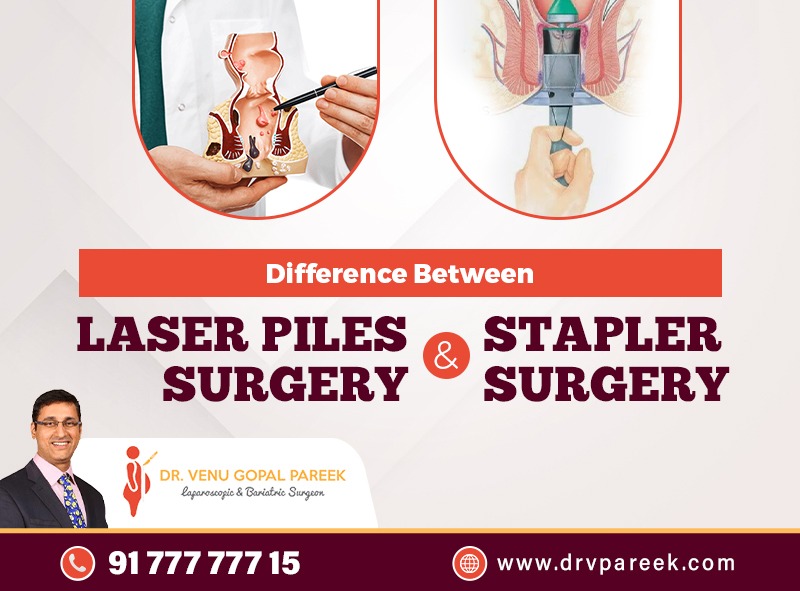
Understanding Piles (Hemorrhoids): Piles, also called haemorrhoids, are a common and often painful medical condition affecting many people around the world. It is defined as the swollen and inflamed blood vessels that appear in and around the rectum and anus. The severity of the condition from one person to the other and may result in pain, itching, and bleeding. Although the precise cause is not well understood, conditions like constipation, strain during bowel motions, and pregnancy may increase the risk of developing piles.
Despite the fact that piles can be unpleasant and irritating, there are a range of treatment options, from self-care strategies to surgical treatments, that can help to reduce symptoms and promote recovery.
Self-care measures such as consuming more fibre food, drinking more liquids and staying hydrated, practising good hygiene, and keeping your bowel movements free of straining can greatly improve mild cases of haemorrhoids. OTC medication medications like creams and ointments might provide relief from itching and pain.
However, in severe piles cases where self-care efforts are ineffective, surgical treatment is essential. Different types of surgical treatment are available for piles which include both invasive and non-invasive procedures. Among them, laser piles surgery and stapler surgery are the most commonly used piles treatments these days.
In this blog, let’s explore the differences between these two treatment options for piles and how to manage this condition effectively.
Laser piles surgery Vs. stapler surgery
Both laser piles surgery and stapler surgery are minimally invasive treatments for haemorrhoids, however, their methods and modes of operation are different.
Laser piles surgery
It is also called laser hemorrhoidectomy or laser hemorrhoidoplasty, a minimally invasive and advanced treatment procedure for treating haemorrhoids. This procedure involves focusing a beam of laser energy precisely on the target so that the swollen blood vessels that cause haemorrhoids shrink and eventually disappear.
In this procedure, a special laser device is used by the surgeon to emit laser energy that seals off the blood vessels causing the haemorrhoids. Laser piles surgery is mostly performed as an outpatient procedure, which means patients are discharged on the same day of the procedure.
Stapler Surgery:
It is also called stapled hemorrhoidectomy a minimally invasive procedure for treating haemorrhoids, especially internal haemorrhoids. The procedure helps to remove excess or prolapsed hemorrhoidal tissue and restore the remaining tissue in its anatomical position.
In this procedure, using a circular stapler, which is placed into the anal canal, the prolapsed tissue above the haemorrhoids is cut out and the remaining tissue is stapled together simultaneously. This is also an outpatient procedure and is effective in treating prolapsed internal haemorrhoids.
Though both laser piles surgery and stapler surgery for haemorrhoids are minimally invasive procedures, there are a few differences that need to be considered:
Technique: In contrast to stapler surgery, which involves cutting prolapsed tissue and restructuring the remaining tissue with a stapling tool, laser piles surgery employs laser energy to reduce haemorrhoids.
Targeted Area: Stapler surgery is mostly suggested for prolapsed internal haemorrhoids, while laser piles surgery is commonly used for internal haemorrhoids.
Mechanism of Action: In laser piles surgery the energy beam coagulates and shrinks the swollen blood vessels, whereas in stapler surgery a part of the tissue is removed and the remaining tissue is repositioned.
Recovery: Both these procedures have shorter recovery periods, but comparatively stapler surgery may have a slightly longer recovery period than laser piles surgery.
Suitability: The choice of selection between these procedures mostly relies on haemorrhoid type and its severity along with patient factors like overall health and other concerns. A piles surgeon will often diagnose the condition and determine the best treatment option.
Dr. Venugopal Pareek, one of the finest piles surgeon in Hyderabad say that for Grade II or Grade III piles, laser treatment is highly recommended and for Grade IV piles, stapler surgery is beneficial. Since there are no cuts or sutures involved in laser treatment, it is painless, and after 48 hours following the surgery, patients can go back to their regular work. If the patients were able to strictly follow the postoperative instructions given by the surgeon, the pile’s problem can be completely treated with laser treatment.
The stapler treatment also involves less pain post-surgery compared to the traditional treatment. Both surgeries are beneficial in their own ways.
The main drawback of stapler surgery compared to laser surgery is the risk of haemorrhoids to recur following stapler surgery more often so the patient might need to undergo the procedure again or go for different piles surgery.
If you are suffering from piles, it is advised to consult an experienced piles doctor and discuss your problem precisely so that he can provide you with the best treatment option for your specific condition. Before proposing the best course of action for you, surgeons will take into account your symptoms, medical history, and special needs. For an appointment, you can reach us at +91 91-777-77715 or visit Appointment Booking.







